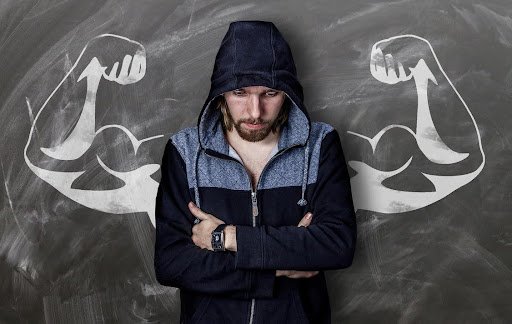The Era of Superheroes and its Effects on Boys' Mental Health
By Will Anderson
We can’t go more than a few months without an exciting new superhero movie coming to theaters. Headlining these movies are a bunch of actors, seemingly all named Chris, who are impossibly muscular. While these superhero movies of overcoming hardships against all odds are inspiring to watch, the unrealistic muscular ideals they display may be the cause of hardships for many young boys.
Imagine a 13-year-old boy, Joey. Joey is relatively skinny but so are a lot of kids his age, so he is not bothered by this. He decides to go see the newest Marvel movie with his friends. In the theater, Joey stares up in amazement at the size of Thor’s muscles and his six-pack abs. He starts to feel like he isn’t good enough. The reality for many teenage boys is that constantly being exposed to these muscular ideals has a significant negative impact on their satisfaction with their bodies and their ratings of their own physical attractiveness (Hargreaves & Tiggemann, 2009). These struggles exist for both boys who perceive themselves as underweight or overweight.
After Joey gets home from the movie, he decides to scroll through TikTok to take his mind off his insecurities. As he does this, he is confronted with video after video of shredded fitness influencers, only a few years older than him, flexing their impressive physiques. Joey begins to compare himself to these influencers. He can tell he is very different from them, but he looks up to them and hopes to be like them in a few years. This is due to the process of social comparison. Social comparison is the process of evaluating your own traits or skills by comparing them to others, typically those similar in age (Cherry, 2019). At Joey’s age, social comparison is an important tool for developing a personal and social identity and determining self-esteem, especially amidst the rapid bodily changes that accompany adolescence. However, with the excessive promotion of muscle mass being an indication of one’s manhood by pop culture, teens are now being told that tall and muscular is the standard to which they should be comparing themselves. While these comparisons can encourage self-improvement, they often have detrimental long-term effects as these comparisons are made upon unrealistic and idealized images (Krayer et al., 2008).
Joey, discouraged at his failure to match up physically to Chris Hemsworth, is inspired by the influencers on TikTok who promote their crazy transitions from skinny teen to muscular man in only a few months. “If they can do it, why can’t I?” he thought. Joey starts going to the gym and improves his diet. However, he is doomed to fall short of his ridiculous expectations. Joey’s progress is slow and undramatic. The unrealistic comparisons fostered by the media will likely lead Joey to fall victim to struggles such as body dysmorphia, depression, or the use of performance-enhancing drugs such as steroids.
What can we do to help boys like Joey? In the movies, these heroes get their ridiculous muscles through supernatural means. However, their real-life counterparts are presented as if these results can be obtained naturally, leading to the idea that anybody should be able to look this way. The truth is, these actors spend up to 3 hours a day in the gym with a personal trainer, have a personal chef and nutritionist, and even starve and dehydrate themselves in the days before filming a shirtless scene (Ireland). Understanding these factors helps to put the actor’s outrageous physiques into perspective. These actors don’t always look picture-perfect, that’s just what makes the final cut.
What if instead of posting photoshopped pictures of themselves dehydrated and in perfect lighting, actors posted videos of them pushing themselves to their limits? Or eating healthy? Or showing up on the days they don’t feel like it? The reality is that many young boys look up to these superheroes and want to be strong like them, and there is nothing inherently wrong with that. But, if actors could be a little more transparent about the crazy process it requires to look like a Norse god, kids like Joey would realize how unrealistic it is to compare themselves to these idealized images. Showing everything it took to achieve Thor’s look, not just the glamorous parts, would go a long way in helping boys like Joey avoid the unhealthy comparisons that bring them down.
References
Cherry, K. (2019, September 19). How Social Comparison Theory Influences Our Views on Ourselves. Verywell Mind. https://www.verywellmind.com/what-is-the-social-comparison-process-2795872
Hargreaves, D. A., & Tiggemann, M. (2009). Muscular ideal media images and men's body image: Social comparison processing and individual vulnerability. Psychology of Men & Masculinity, 10(2), 109-119. https://doi.org/10.1037/a0014691
Ireland, K. (n.d.). How Do Actors Lose Weight So Fast? LIVESTRONG.COM. Retrieved March 14, 2023, from https://www.livestrong.com/article/30807-actors-lose-weight-fast/
Krayer, A., Ingledew, D. K., & Iphofen, R. (2008). Social comparison and body image in adolescence: A grounded theory approach. Health Education Research, 23(5), 892-903. https://doi.org/10.1093/her/cym076

